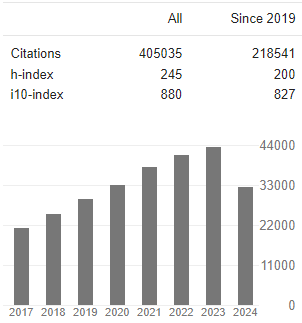Swiss Cooperation Funding for Local Government Management in Benin: Impacts on Family Farming from Maize Production Yield Perspective?
Abstract
Arnaud Dedehouanou and Tareq Soumaila
The aim of this research was to contribute to the literature on the impact of funding (subsidies) on farmers' productivity and hence on local development. To achieve this objective, the data collected concerned sample of 521 maize producers accessing from PASDeR spread over the intervention zone (Borgou, Alibori, Atacora and Donga). Heckman's two-stage estimation method was used to make the estimates. Based on the results obtained, we found that the selection process for financial subsidy beneficiaries is optimal. It was demonstrated that the financial subsidy is significant in justifying maize yield. However, the correlation between the financial subsidy and maize yield is negative, confirming the assertion of Blair, 1984 and Sonne 2010. This is because PASDeR's target group is mainly poor and does not have easy access to conventional financial services to bridge funding gap. Finally, policy recommendations aiming to strong involvement of elected representatives, an in-depth diagnosis of the real and complete needs of farming and the rigorous monitoring of beneficiaries must be addressed.





